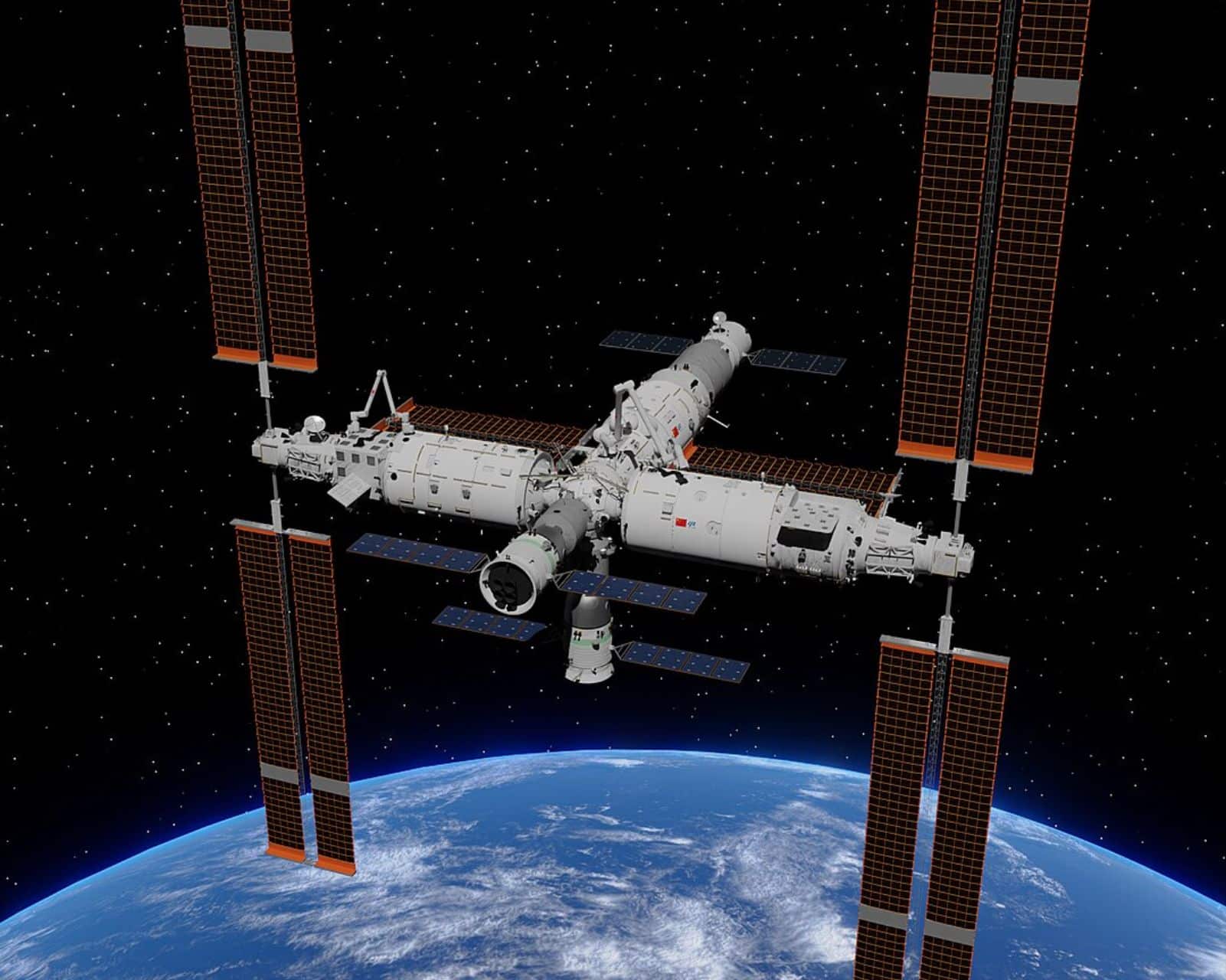

Scientists have identified an ‘alien’ bacterium aboard China’s Tiangong space station, one never before recorded on Earth. The bacterium, Niallia tiangongensis, was discovered on the spacecraft’s control panels and is believed to be uniquely adapted to life in space.
The discovery was part of a broader investigation under the China Space Station Habitation Area Microbiome Program (CHAMP), which studies how microbes behave in closed, crewed environments during long-term space missions.
China Central Television reported that Chinese astronauts collected swab samples from the station’s interior in May 2023. The samples were frozen and later returned to Earth for analysis.
A study published in the Journal of Systematic and Evolutionary Microbiology detailed how the bacterium was isolated and genetically sequenced.
Researchers confirmed it belongs to the Niallia genus, a group of rod-shaped bacteria known for their thick cell walls and ability to form endospores—tough structures that allow them to survive in extreme conditions.
CHINA DISCOVERS MUTANT BACTERIA ON TIANGONG STATION
Chinese scientists have isolated Niallia tiangongensis, a mutant bacterium thriving aboard the Tiangong Space Station.
Collected via sterile wipes and frozen back to Earth, the bug boasts unique traits: it digests gelatin,… pic.twitter.com/MqWredhvx5
— Mario Nawfal (@MarioNawfal) May 21, 2025
Genetic analysis revealed Niallia tiangongensis is closely related to Niallia circulans, a species found on Earth. However, scientists say the Tiangong strain contains substantial genetic differences, confirming it as a new species.
While its precise origin remains unknown, experts are investigating whether it evolved aboard the station or was an undiscovered Earth-based organism before launch.
The bacterium exhibits several traits that help it survive the harsh environment of space. It can uniquely break down gelatin, allowing it to use this protein as a food source in nutrient-scarce conditions.
It also forms protective biofilms, activates stress responses to radiation, and aids in repairing cell damage—adaptations researchers say are crucial for life in microgravity.
Though the discovery is considered a scientific breakthrough, questions remain about the bacterium’s potential impact on human health.
So far, there is no evidence that Niallia tiangongensis poses a threat to astronauts. However, its closest Earth-based relative, Niallia circulans, is known to cause infections such as sepsis, particularly in people with weakened immune systems.
Scientists believe the new species will provide valuable insights into microbial risks during spaceflight.
The findings could inform stricter sanitation protocols for future missions, especially as space agencies plan for extended stays aboard orbital stations or eventual missions to the Moon and Mars.
While thousands of bacterial species have been documented, researchers estimate that billions remain unclassified. The discovery of Niallia tiangongensis highlights how much there is still to learn, both on Earth and beyond.
